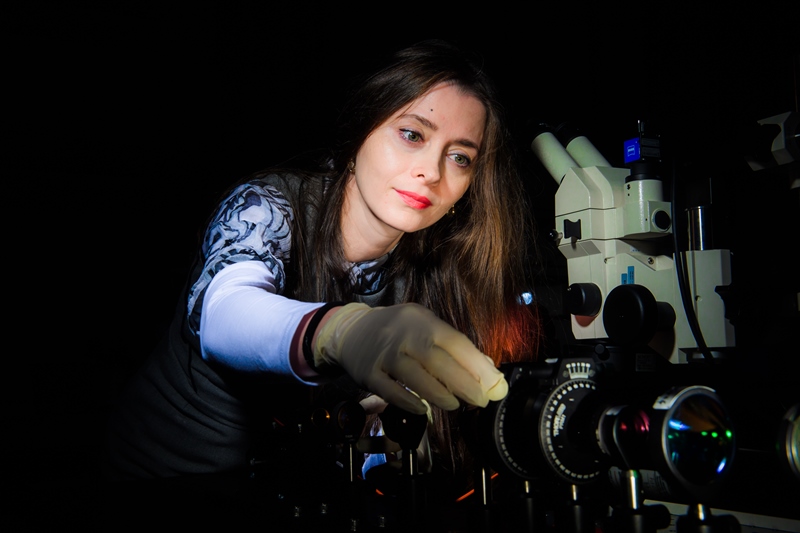BGN Technologies, BGU's technology transfer company has introduced a new chip device that offers superior identification of miniscule blood residues for forensic applications.
The new device combines the use of luminol, a chemical that exhibits chemiluminescence, with gold or silver nanospheres, positioned in a specially designed serpentine-shaped microfluidic device. The nano-antennas significantly increase the detection limit by amplifying emission of chemiluminescence light, thus facilitating the imaging due to the integration with a microfluidic chip.

The technology was developed by Dr. Alina Karabchevsky (pictured above) of the Electro-Optics and Photonics Unit and the Ilse Katz Institute for Nanoscale Science & Technology at BGU.
"Our findings open the door to new, integrated microfluidic chips based on Purcell effect mediated by nano-plasmons with gain media. Practical implementation of the discovered effect will include further superior chemiluminescence-based sensors for forensic science, research in biology and chemistry, and no-source opto-chemical lasers," said Prof. Karabchevsky.
Criminologists use luminol to identify microscopic blood drops, as well as low concentrations of hydrogen peroxide, proteins and DNA which are all invisible to the naked eye. The use of lumino-based chemiluminescence to detect these biological residues is advantageous since the detected signal does not depend on an external light source, and it is cost-effective. The microfluidic chip invented by Prof. Karabchevsky and her team, not only increases the chemiluminescence intensity several fold, but also prolongs the glow time of luminol, enabling the detection of much smaller blood samples in a forensic scene.
"Identifying trace quantities of blood can increase the efficiency and accuracy of a forensic investigation of a crime scene, but requires more sensitive detectors than those that are currently available," explained Netta Cohen, CEO, BGN Technologies. "The method developed by BGU researchers will enable development of future detectors with improved sensitivity. We are currently looking for partners for further developing this promising patented invention."
Media Coverage:
The Times of Israel
Israel21C
Cision
Breaking Israel News